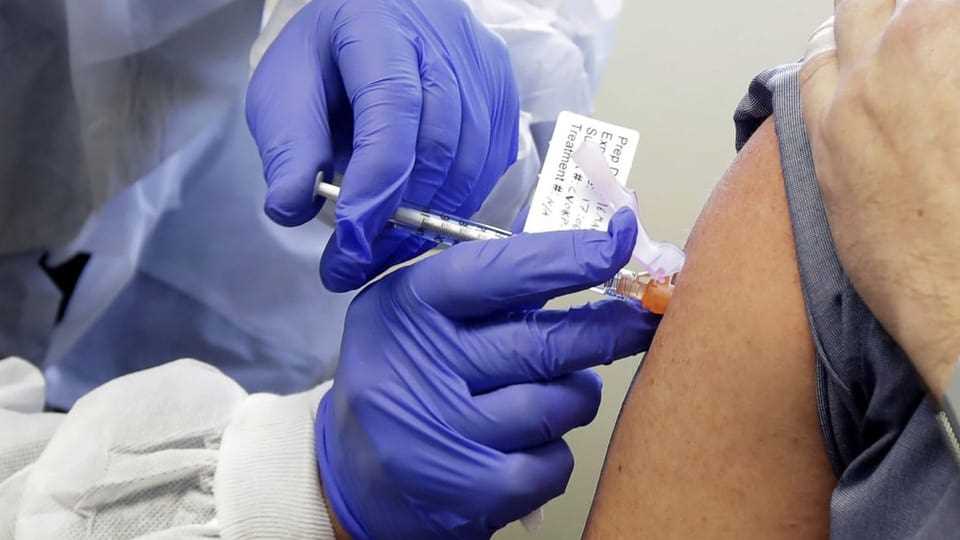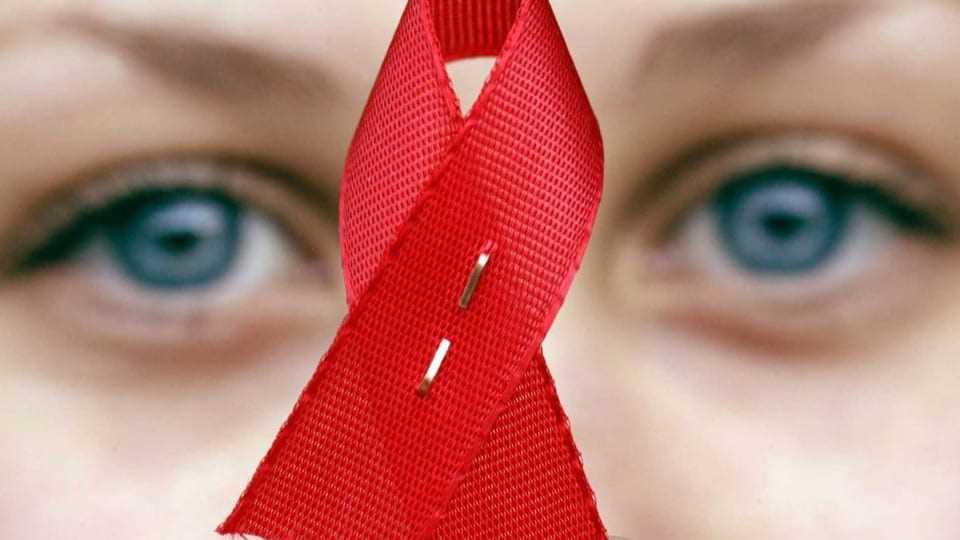Scientists have been researching a vaccination against the HI virus for decades. Despite this, there is still no reliable vaccine against the AIDS pathogen. An mRNA vaccination against AIDS has now been administered in the USA for the first time – as part of an initial test phase. The virologist Alexandra Trkola on the chances and limitations of the vaccine.
SRF News: Why does mRNA technology raise hopes for a vaccine against AIDS?
Alexandra Trkola: When it comes to HIV, expectations are somewhat lower. But here, too, the technology will bring a lot for the development phase. They allow us to test a wide variety of vaccine concepts in humans more quickly – that was not possible before.

Legend:
The Covid vaccines from Moderna and Pfizer/Biontech are also based on mRNA technology.
key stone
Despite decades of research, it has not yet been possible to develop an effective vaccine. What should be different about this vaccination?
It builds precisely on decades of research. mRNA technology is just the vehicle for delivery of this development that has been done before. So it is not a new concept in relation to the active component of the vaccine.
We must completely prevent the HI virus from infecting humans.
Several vaccines were developed against the corona virus in record time. Why is there still no anti-HIV after more than 40 years?
If you look at the surface of the two viruses, they appear to be very similar. Both have spike proteins and both are known to require neutralizing antibodies directed against these spike proteins. The spikes of the corona virus are comparatively simple in structure. The antibodies can dock there very well. With the Covid vaccines, you take the spike more or less as it is – and that’s the vaccine.
This approach was tried with HIV decades ago. But it doesn’t work because the HIV spike protein protects itself much better against attack by antibodies.

Legend:
The virologist sees the benefit of mRNA technology above all in the fact that it can be tested much more quickly whether vaccination concepts work. In this way, vaccine developments can be launched more quickly.
key stone
HIV infects and stays in humans. Once we are infected, we cannot get rid of the virus. Sars-CoV-2, on the other hand, is only transient, like all other corona viruses. It only stays in us for a short time and the infection is completely cleared again. The gigantic effort to protect the neutralizing docking sites is therefore not necessary for the virus.
The vaccines against the HI virus that have been developed so far have had disappointing results. For example, the best approach in clinical studies achieved a protective effect of around 30 percent. Why is HIV vaccine development so difficult?
There are many factors that make HIV very complex. And with HIV, we need much stronger protection. We must completely prevent the virus from infecting. Once the virus integrates into the cells, it is passed through the cells and stays inside us. It can only be treated, but no longer eliminated.

Legend:
Much higher protection must be achieved for HIV than for Covid for the vaccine to be considered effective. Because with Sars-CoV-2, the focus is on alleviating the disease. In the case of HIV, the infection should already be prevented.
key stone
Sars-CoV-2, on the other hand, does not integrate into the cells. The immune responses that the Covid vaccines achieve are very good. They do not give complete protection against infection, but they do allow for reduced disease. The goal with these vaccines was that you didn’t end up in intensive care.
On the other hand, there is no reduced HIV disease. If you get infected and you don’t get treatment, then that infection progresses over the years and you eventually die from it.
Eliane Leiser conducted the interview.
